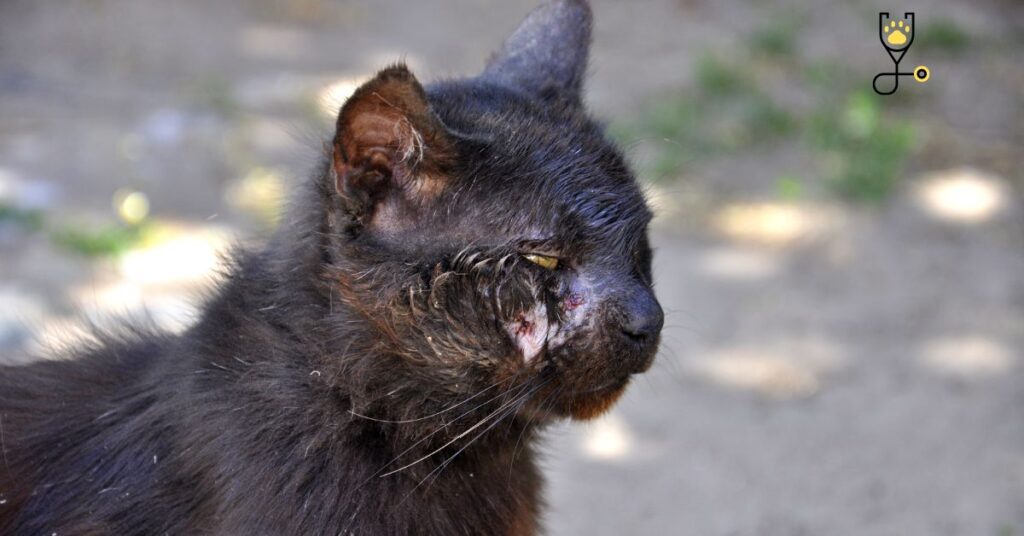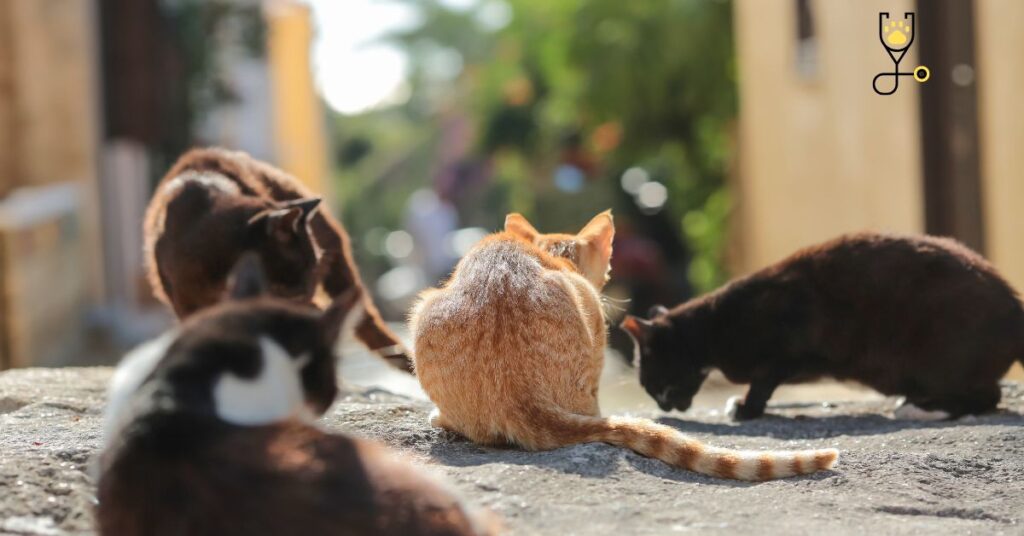Do you have a cat? Does your veterinarian talk to you about Feline Immunodeficiency Virus (FIV)? If not, they should! FIV is a serious disease that can affect cats of all ages and it’s important to be aware of the symptoms and how to prevent it. In this blog post, I’ll discuss what FIV is, how it’s transmitted, and what you can do to protect your feline friend.
What is FIV in cats?
Feline Immunodeficiency Virus is a Lentivirus, which is a type of retrovirus. It attacks the immune system of cats, making them more susceptible to other infections and diseases. The virus is most commonly transmitted through bite wounds, so outdoor cats or those that fight with other cats are at a higher risk.
What are the symptoms of FIV?
The symptoms of FIV can vary and may not be apparent for years after infection. Some common symptoms include:
– Weight loss: As the virus attacks the immune system, cats may have a decreased appetite and lose weight.
– Fever: A fever may be one of the first signs that something is wrong and may be accompanied by other symptoms such as lethargy, loss of appetite, and swollen lymph nodes.

– Respiratory problems: Pneumonia is a common complication of FIV and can cause difficulty breathing, increased respiratory rate, and exercise intolerance.
– Gastrointestinal problems: Diarrhea and vomiting are common in cats with FIV and can lead to dehydration.
– Neurological problems: FIV can cause neurological problems such as seizures, head tilt, or incoordination.
– Oral health problems: Gingivitis and stomatitis are common in cats with FIV and can cause bad breath, drooling, and difficulty eating.
How is FIV diagnosed?
If you suspect your cat may have FIV, it’s important to take them to the veterinarian for testing. There are two types of tests that can be used to diagnose FIV:
– ELISA test: This test detects antibodies to the virus in the blood and is typically used as a screening test. A positive result on this test indicates that the cat has been exposed to the virus but this does not necessarily mean they are currently infected.
– Western blot test: This test is more accurate than the ELISA and is used to confirm a diagnosis of FIV. A positive result on this test indicates that the cat is currently infected with the virus. There is no cure for FIV, but there are ways to manage the disease and help your cat lead a happy and healthy life. Treatment typically focuses on supportive care and treating secondary infections. It’s important to keep your cat indoors to prevent them from spreading the virus to other cats and to avoid exposing them to other diseases. If you think your cat may have FIV, or if you have questions about the disease, talk to your veterinarian. They can help you make the best decisions for your feline friend.
Major causes of the feline immunodeficiency virus(FIV) in cat
The primary mode of FIV transmission is through bite wounds. However, infected mothers can also pass the virus to their kittens during pregnancy or nursing. Outdoor cats and those that fight with other cats are most at risk for contracting the disease. There is no cure for FIV, but there are ways to manage the disease and help your cat lead a happy and healthy life. Treatment typically focuses on supportive care and treating secondary infections. It’s important to keep your cat indoors to prevent them from spreading the virus to other cats and to avoid exposing them to other diseases. If you think your cat may have FIV, or if you have questions about the disease, talk to your veterinarian. They can help you make the best decisions for your feline friend.

Possible treatments of FIV in cats
There is no cure for FIV, but there are ways to manage the disease and help your cat lead a happy and healthy life. Treatment typically focuses on supportive care and treating secondary infections. It’s important to keep your cat indoors to prevent them from spreading the virus to other cats and to avoid exposing them to other diseases. If you think your cat may have FIV, or if you have questions about the disease, talk to your veterinarian. They can help you make the best decisions for your feline friend.
How can you prevent FIV in cats?
– Keep your cat indoors: This is the best way to prevent your cat from contracting FIV.

– Spay or neuter your cat: This will help to reduce fighting and roaming.
– Get your cat vaccinated: There is a vaccine available for FIV, but it is not 100% effective.
-Socially isolate new cats: If you are introducing a new cat to your home, it’s important to do so slowly and under the supervision of a veterinarian. This will help to reduce the risk of fighting and transmission of the virus.
-Wash wounds immediately: If your cat does get into a fight, it’s important to clean any wounds immediately and take them to the veterinarian.
- If you think your cat may have FIV, or if you have questions about the disease, talk to your veterinarian. They can help you make the best decisions for your feline friend.
Prognosis of FIV in cats
The prognosis for cats with FIV is generally good with proper medical care. Most infected cats will live long and healthy lives with few symptoms. However, some cats may develop seriously debilitating illnesses such as cancer or neurological problems. It’s important to work closely with your veterinarian to develop a treatment plan that is best for your cat.
Conclusion
FIV is a serious disease that can have a devastating effect on cats. However, with proper medical care and management, most infected cats can live long and healthy lives. If you think your cat may have FIV, or if you have questions about the disease, talk to your veterinarian. They can help you make the best decisions for your feline friend.
Frequently Asked Questions
FIV is a serious disease that can have a devastating effect on cats. However, with proper medical care and management, most infected cats can live long and healthy lives. If you think your cat may have FIV, or if you have questions about the disease, talk to your veterinarian. They can help you make the best decisions for your feline friend.
The primary mode of FIV transmission is through bite wounds. However, infected mothers can also pass the virus to their kittens during pregnancy or nursing. Outdoor cats and those that fight with other cats are most at risk for contracting the disease.
The symptoms of FIV can vary and may not be apparent for months or even years after infection. Some common symptoms include fever, weight loss, poor appetite, and lethargy. However, some cats may never show any signs of disease.
FIV can be challenging to diagnose because the symptoms can be vague and mimic other diseases. Your veterinarian will likely start with a physical examination and a complete medical history. They may also recommend blood work, including a test for the presence of FIV antibodies.
There is no cure for FIV, but there are ways to manage the disease and improve the quality of life for infected cats. Treatment is typically focused on managing symptoms and preventing secondary infections.







